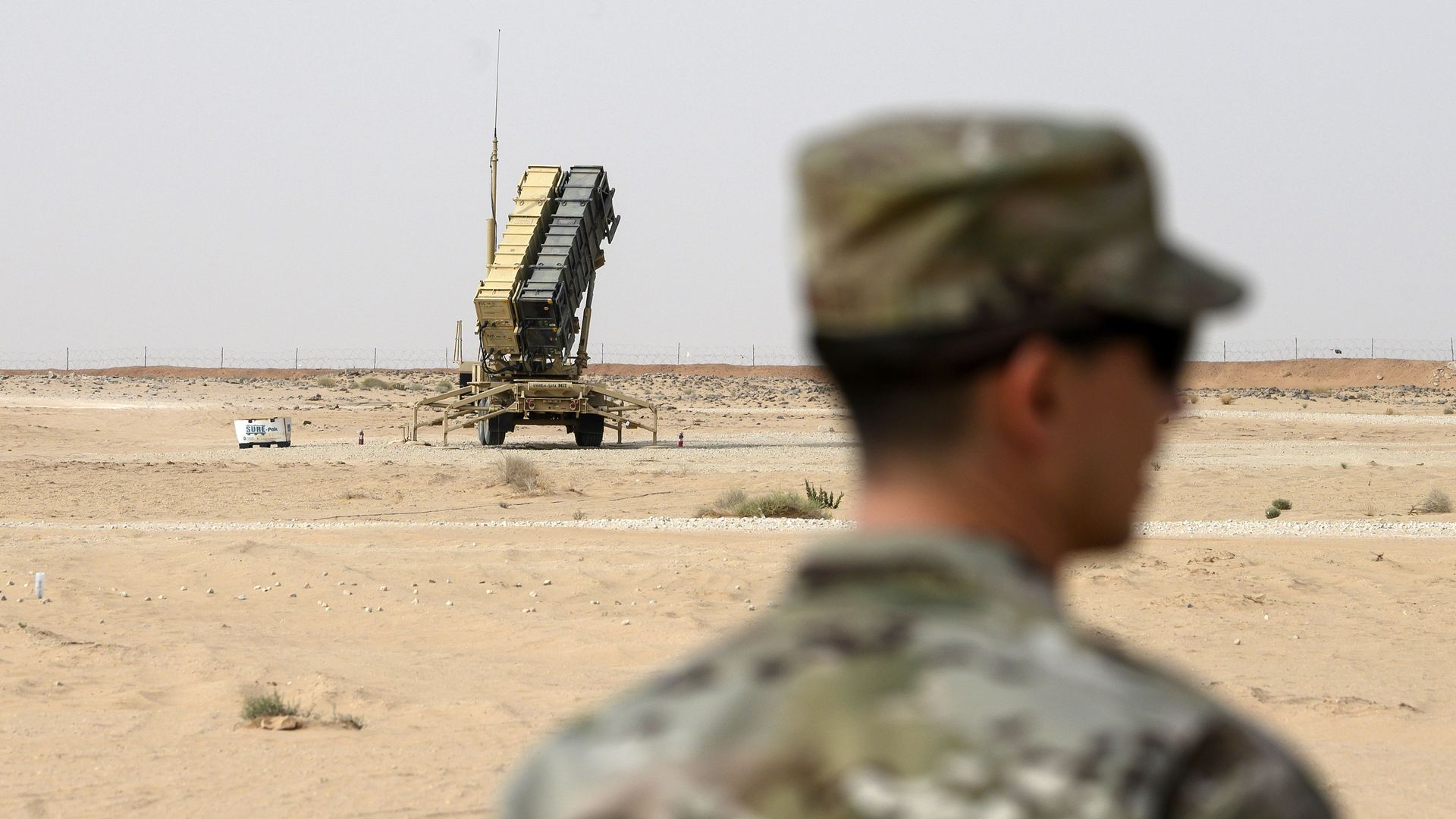Dec 29, 2020 - World
Pentagon notifies Congress of plans to sell smart bombs to Saudi Arabia
Add Axios as your preferred source to
see more of our stories on Google.

A U.S. Airforce member near a Patriot missile battery at the Prince Sultan air base in Al-Kharj, in central Saudi Arabia in February. Photo: Andrew Caballero-Reynolds/POOL/AFP via Getty Images
